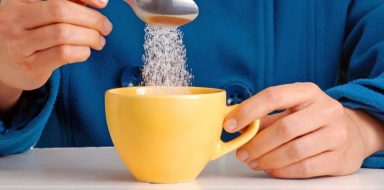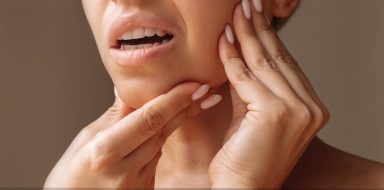Photo Credit: Ridofranz / iStockPhoto.com
OAB With Relaxation
Even though researchers have been investigating the symptoms for a long time, no one is quite sure what causes overactive bladder (OAB). The condition, marked by the unexpected and uncomfortable urge to urinate, continues to be a mystery to those looking to prevent and treat it.
But there is no mystery to the people that deal with OAB daily. They know that the condition causes unwanted levels of stress and anxiety.
Whenever people look for the cause of a disease, they begin to seek out associations. What is OAB associated with? What could bring about the symptoms and what can be done to treat the condition?
Interestingly, the same stress and anxiety that is caused by OAB could actually make OAB symptoms worse. Many believe that OAB is highly related to mental health disorders including depression, attention-deficit hyperactivity disorder and anxiety.
The link may be serotonin, which is the neurotransmitter that controls and plays a role in many bodily functions including sleep, energy, and mood. This evidence points to a bidirectional relationship between OAB and stress as each one makes the other worse.
Relaxation to Beat Stress
When it comes to methods to reduce OAB symptoms, there is a list of options including drugs, surgeries, and electrical stimulation. In some situations, these may be helpful, but you are probably looking for simpler interventions with lower risk and higher benefit. For you, the starting point is relaxation.
Relaxation techniques are a broad category of tips, techniques, skills, and interventions that work to change some aspect of your body and mind. The goal of all relaxation techniques is to reduce the level of stress and anxiety in the affected person. Be aware that not every relaxation technique with yield amazing results for every person, but with practice and persistence, these skills might make a desired difference with your OAB. Here are the best options to consider:
Deep Breathing
When you read “deep breathing,” you might think that this relaxation has to be a tremendous waste of time. Why would you need someone to teach you how to breathe when you’ve been doing it your entire life? Yes. You have been breathing your whole life, but chances are good that your adult life has been spent breathing in a way that reduces your oxygen supply, forces your body to work harder, and triggers stress. Forget everything you thought you knew about deep breathing to give it another genuine try.
Even though overactive bladder in men is less common, it can still happen. Here are the signs to look for and how to treat the condition.
Find a calm, quiet place to sit comfortably while placing your left hand on your chest and your right over your belly button. Keep your shoulders and left hand still as you slowly breathe in to expand your stomach and push out your right hand, hold it, and then exhale even more slowly allowing your right hand to move back towards your spine.
This is going to feel uncomfortable, and that is the point. The shallow, chest breathing that you have become conditioned to is not beneficial. Work through your discomfort to relearn this way of relaxation. Doing this for 10-20 minutes twice daily can drastically improve your relaxation, decrease your stress, and quiet your OAB symptoms. All it takes is breathing.
Mindfulness Training
Whereas deep breathing focuses only on your body, mindfulness training, as its name would suggest, focuses only on your mind. Mindfulness is the act of being in the moment wherever and whenever you are. Too many people are living life in constant distraction and daydreams. This causes you to miss out on the events that are unfolding in front of you. It leads to multitasking, which leads to stress.
To combat this trend, work hard to find yourself in the moment no matter what the moment is. If you are waiting in a doctor’s office, find yourself waiting in the doctor’s office. Avoid the distraction of your phone or even a magazine. By practicing the skill of being comfortable with yourself, you can reduce stress.
A great exercise for this is to sit in a silent room and pick up on what your senses are telling you. Pay attention to what you hear, see, feel, smell, and taste. Even quiet, “boring” spaces can yield large amounts of information if you are attentive to it. This process also helps you listen to your body more closely.
Autogenic Training
Rather than listening to your body, autogenic training works to have your body listen to you. Autogenic training works by reading or listening to a script specifically geared towards your relaxation. By repeating statements like “I feel calm,” “My body is relaxed,” and “My OAB will be calm and controlled today,” you can make a real difference in the way you feel and how your body responds.
Do some exploring online to find scripts that seem comfortable to you and find ways to add OAB-specific content to the existing information. Research has shown the strong connection between what you say to yourself and how your body responds. Autogenic training is the perfect example of this. You can talk yourself into less stress.
Progressive Muscle Relaxation
Like with deep breathing, progressive muscle relaxation (PMR) focuses solely on the body rather than the mind. Since mental tension leads to physical tension, spend a few moments scanning your body and looking for problem areas. Does your jaw hold a lot of your stress? What about your back or your hands? Whatever areas hold your tension are areas in need of PMR.
The act is accomplished through a repetitive tensing and relaxation of body parts. The idea is that for your body to feel full relaxation, it must first feel increased tension. For example, if your jaw is a problem area, you would tense the area by opening your mouth widely for five seconds, and then allow it to come to rest slightly open. Repeating this pattern will illustrate the contrast between relaxation and tension. Conversely, a similar effect can be gained from biting down hard for five seconds and then releasing. Each body part will have multiple ways to achieve the tension. It will be up to you to discover what works best.
For best results, cycle through your entire body to accomplish a fuller relaxation.
Conclusion
OAB is going to add stress to your life. As it turns out, stress will also add to your OAB symptoms. Since your direct control over OAB is limited, target the stress — relaxation is so valuable for coping with OAB. By deep breathing, learning mindfulness and autogenics, and practicing PMR, you will put in a significant dent in your anxiety and worry.
With these relaxations more is usually better, so relax early and relax often to control your OAB.







